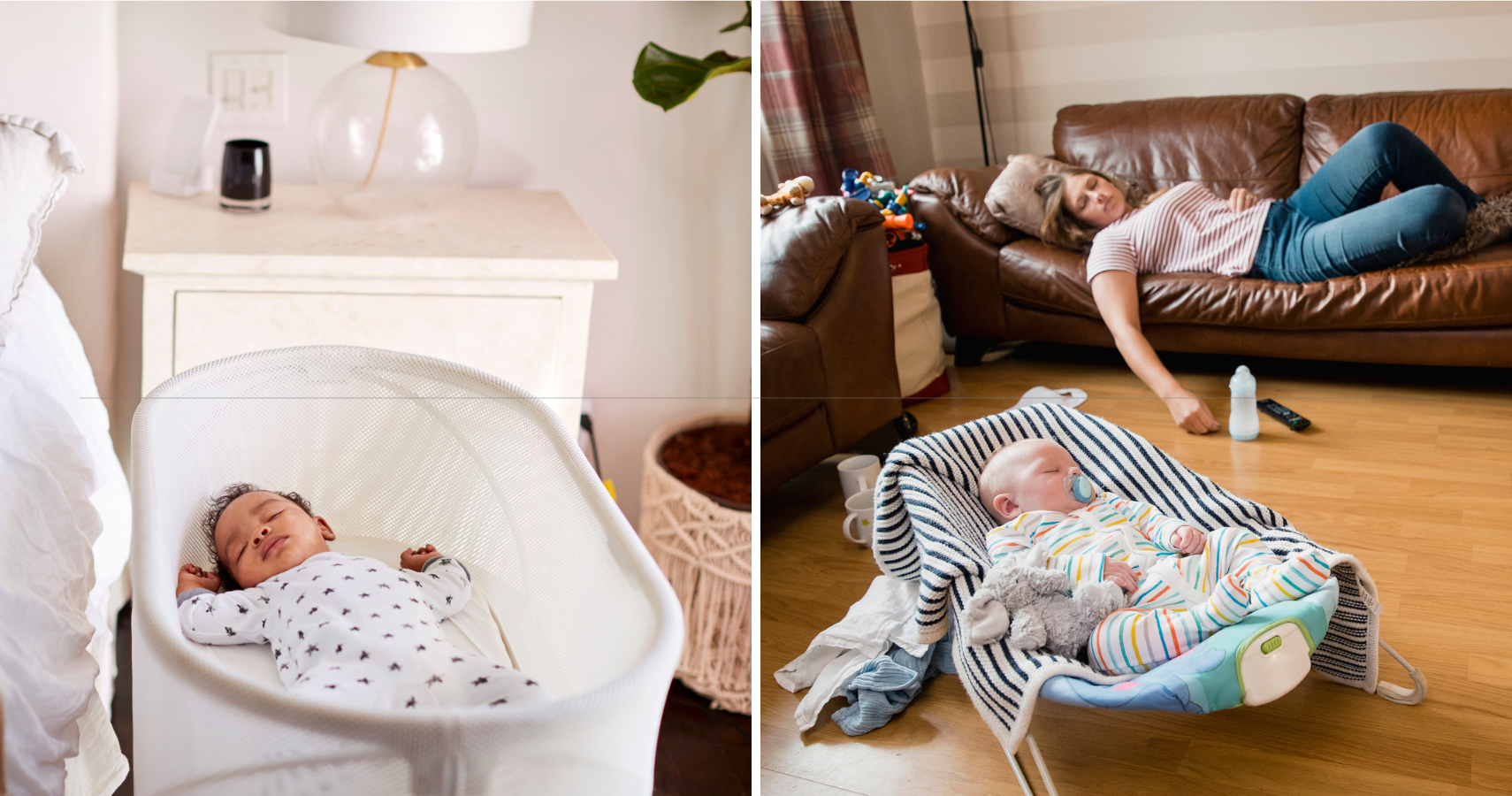When you become a parent for the first time, you are going to get A LOT of advice. Most of it well-meaning, yes, and most of it unsolicited! You're going to hear from friends and family about how to do just about everything, based on what worked for them. Which is fine! But one of the most important things to remember about having a baby is that what works for one family may not work for another. Also, people love to pass along advice that is, well, not entirely accurate. There are a lot of myths out there about babies, and you need to know how to sift through them to get to the truth. Here are some common newborn sleep myths debunked.
Newborn Sleep Myth: Putting cereal in your baby's bottle at night will help them sleep through the night.
Reality: Sorry, parents! This one is just not true. Not only that, experts warn that putting cereal in your baby's bottle at night could actually be harmful. It could lead to excess weight gain, because your baby is getting more calories than they need. The American Academy of Pediatrics recommends introducing your baby to solids between 4-6 months of age; any earlier and their stomach may not be able to properly digest the new food.
Newborn Sleep Myth: Babies need to sleep in total silence.
Reality: Not true! While your baby was in your womb, they heard noise pretty much 24 hours a day, 7 days a week. They're used to noise, and eliminating it can actually make it harder for them to sleep. We don't recommend blasting rock music four feet from your sleeping newborn, but some background noise is totally fine. This newborn sleep myth just doesn't play out.
Newborn Sleep Myth: You should stop swaddling at 2 months old.
Reality: Not necessarily! Swaddling can be incredibly helpful between the ages of 2-4 months, when babies are on a developmental upswing and you're nearing the 4-month sleep regression. You should stop swaddling, however, once your baby has learned how to roll over onto their stomach.
Newborn Sleep Myth: You can control when and how long your newborn sleeps.
Reality: Oh, how we wish this were true! But in reality, newborns follow their own sleep-wake schedule, and it's up to you to follow their cues, and not the other way around. In the first few months of their life, a newborn sleeps when they're ready and wakes when they're hungry, need to be changed, or upset.
Newborn Sleep Myth: Never wake a sleeping baby.
Reality: We've all heard this one! But when you're dealing with a newborn, sometimes you have to wake a sleeping baby, to feed them or change or even just move them to their crib or bassinet. Waking a sleeping baby and then putting them back down in their crib or bassinet can actually help them learn how to fall asleep on their own.
Newborn Sleep Myth: Keeping your baby awake during the day means they'll sleep longer at night.
Reality: Anyone who has dealt with an over-tired baby knows this one is a myth. Again, newborns don't adhere to normal sleep schedules or patterns. They sleep when they're tired, and when they're tired, they need to sleep! Keeping your newborn awake is one, incredibly difficult to do, and two, will only result in your baby getting extra fussy and upset.
Newborn Sleep Myth: Most babies are sleeping through the night by 6 months old.
Reality: This is one of those newborn sleep myths that can actually be really damaging to parents. Because when you hear that, and your 6 month old is still waking up a few times every night, you begin to feel like you're doing something wrong! While it may be true that most babies can sleep through the night by 6 months old, it doesn't mean that they're actually doing it. In fact, as many as 50% of babies at that age still wake up at least once during the night.
READ NEXT: 20 Parenting Myths That Moms Have Probably Fallen For

